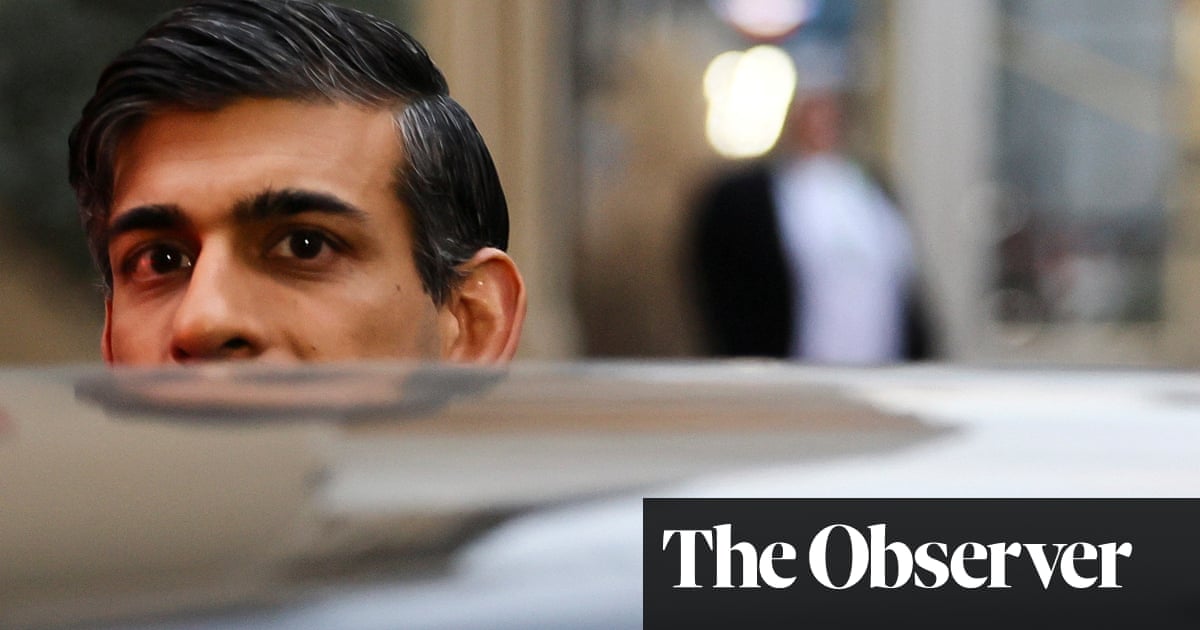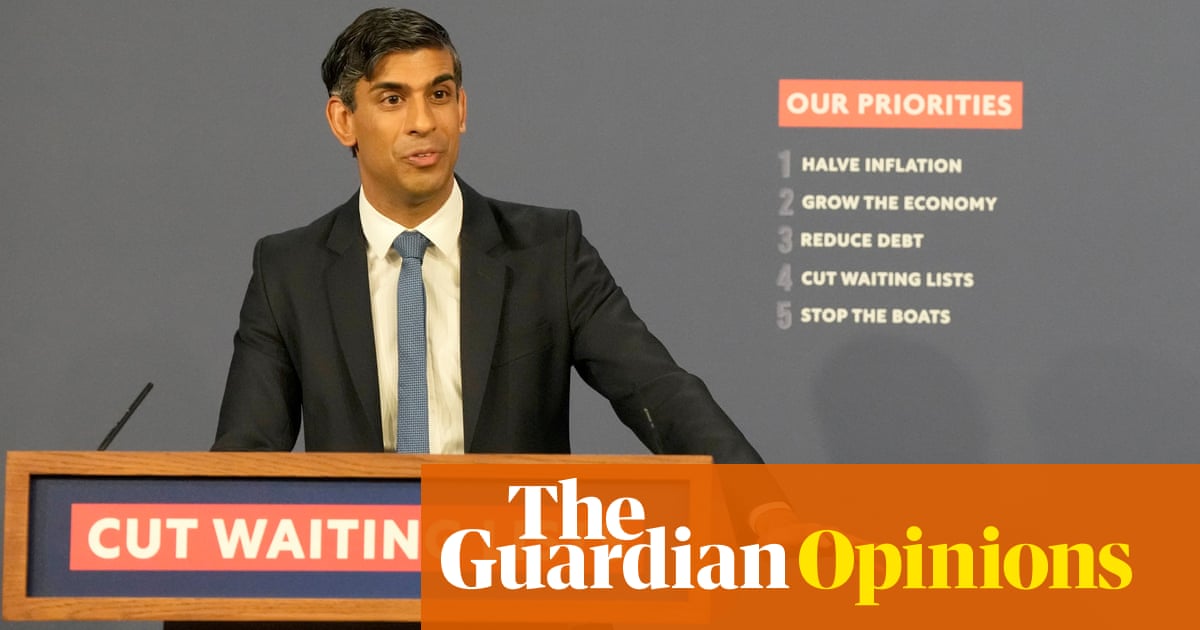
The Conservative party is embroiled in yet another seismic internal argument over Brexit and lags way behind Labour in the polls. And all this as the country it has governed for almost 13 years endures the worst public sector strikes for decades and reels under double-digit inflation.
Yet despite the turmoil, senior Tory MPs – including many from the old Eurosceptic right of the party – are beginning to sense some hope under Rishi Sunak, at the very point the prime minister appears in greatest trouble, and believe a turning point could be approaching.
They say there are opportunities in the coming weeks for the prime minister to face down internal opponents and to assert his authority over – and define himself against – his trouble-causing predecessor but one, Boris Johnson.
The former Brexit secretary David Davis, who is critical of the way Johnson is kicking off about the Northern Ireland protocol deal that he negotiated at No 10, said: “I think that if Rishi Sunak gets an agreement on the protocol and that if the budget next month is less austere than is currently being telegraphed, then these could be the first signs that he is coming out of the storms. If that happens we would still have a one in three chance of winning the next election.”
That view – far more optimistic than he and most colleagues would have offered just a few weeks ago – is widely shared among Conservative MPs, large numbers of whom are weary of division over Europe and just want to be in with a chance – even a slight one – of winning next time.
Most predict that only a rump of 20 or so hardcore anti-EU colleagues may rebel over the protocol – and most backbenchers want Sunak to take them on and face them down.
Martin Vickers, the MP for Cleethorpes, a long-time Eurosceptic and current member of the 1922 committee executive, who voted against the UK’s entry into the EEC in 1973, said “the public has moved on” from Brexit and so should his party. There were signs inflation was falling and that interest rates would follow. “We have reasons to be positive. For instance in April pensioners will receive a 10% increase in their income. I agree that if the economy improves things could look very different politically in 18 months’ time.”
The period to Easter will be critical for Sunak. A lot will have to go right for him. But if a protocol deal can be followed by sensible settlements with striking nurses, doctors, teachers and train drivers and the public finances continue to improve, then most of his MPs say he will at least be competitive with Keir Starmer and Labour.
John Stevenson, the MP for Carlisle who chairs the Northern Research Group of Tory MPs in “red wall” seats, said Labour would be wrong to assume victory in areas like his, or nationally. “Starmer has not cut through. He is just there. If we can deal with the Europe issues, if immigration ceases to be such a problem and interest rates come down there is a way back. I am an optimist.”
The latest Opinium poll for the Observer last weekend gave Labour a comfortable 16-point lead (44% vs 28% for the Conservatives). That is a huge deficit to claw back.
Charles Walker, the MP for Broxbourne, admitted there were no “quick fixes” to restore his party’s fortunes. But there was now at least a possible route through. Sunak had a chance to “break with its addiction to poor decision making” and was well suited for taking on Starmer, after the chaotic experience of Johnson and Liz Truss.
Walker added that Sunak was a good foil for Starmer and the best kind of contrast to Johnson. “Being serious about public policymaking is a prerequisite for mounting an assault on Labour’s opinion poll lead,” he added. “Bluntly, in these challenging domestic and international times, his [Sunak’s] disciplined, thoughtful and discursive approach to problem solving is what is needed.”
On 10 March Sunak will attend an Anglo-French summit in Paris with President Emmanuel Macron, after years of arguments between the countries over Brexit and immigration. It will be the first summit since 2018. Sunak hopes to build closer co-operation than was possible under Johnson or Truss to tackle migration across the Channel in small boats – a touchstone issue for many Tory voters.
Then the budget on 15 March will offer Sunak and the chancellor, Jeremy Hunt, a chance to demonstrate they are getting a grip on public finances after the turmoil of the Truss premiership. Many Tory MPs will want to hear about tax cuts, but most will probably be satisfied with long-term commitments rather than immediate reductions. Other Conservatives, including Stevenson, want Hunt to prevent 20% rises in energy bills in April.
Sunak is also planning new green announcements on net zero in an attempt to catch up with Labour over its commitment to a clean energy economy. As one senior adviser put it: “It is late in the day. But we may yet just have a half decent platform on which to fight the next election.”












